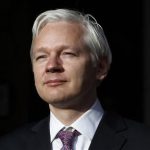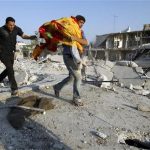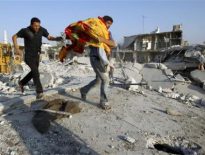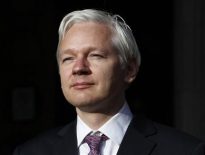(Reuters) – Israeli President Shimon Peres on Thursday came out against any go-it-alone Israeli attack on Iran, saying he trusted U.S. President Barack Obama’s pledge to prevent Tehran from producing nuclear weapons.
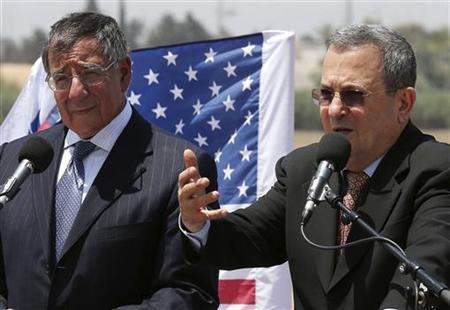
“I am convinced this is an American interest. I am convinced (President Obama) recognizes the American interest and he isn’t saying this just to keep us happy. I have no doubt about it, after having had talks with him,” Peres told Israel’s Channel Two television.
“Now, it’s clear to us that we can’t do it alone. We can delay (Iran’s nuclear program). It’s clear to us we have to proceed together with America. There are questions about coordination and timing, but as serious as the danger is, this time at least we are not alone.”
The elder statesman’s remarks appeared to challenge Prime Minister Benjamin Netanyahu and Defence Minister Ehud Barak, who have both raised the prospect of a unilateral Israeli attack against Iran.
An unidentified top Israeli official, widely believed to be Barak, said in an interview with the Haaretz newspaper on Friday that the Jewish state “cannot place the responsibility for its security and future even in the hands of its greatest ally”, a reference to the United States.
As president, Peres, 89, has little political power in Israel. But he has won the respect of many Israelis while serving in the post and travels abroad frequently to meet foreign leaders.
A flurry of comments by Israeli officials and Israeli media reports over the past week put financial markets on edge by appearing to suggest a strike could be launched before the U.S. presidential election in November.
At a news conference in Washington on Tuesday, U.S. Defense Secretary Leon Panetta said it was important that military action be the “last resort”, adding that there was still time for sanctions and diplomatic pressure to work.
“I don’t believe they’ve made a decision as to whether or not they will go in and attack Iran at this time,” Panetta said.
In parliament on Thursday, Barak said Israeli deliberations on a course of action were on-going.
“There is a forum of nine (ministers), there is a (security) cabinet, and a decision, when it is required, will be taken by the Israeli government,” Barak said.
“This doesn’t mean there aren’t differences. The issue is complicated, but the issue is being deliberated,” he added.
Israeli officials have told Reuters that the cabinet was split on the issue, while the top military leadership was believed to be opposed to any mission that did not have full U.S. support.
Iran rejects Israeli and Western allegations that its nuclear program is aimed at producing atomic weapons.
It has threatened wide-ranging reprisals if attacked, retaliation that could draw the United States into the conflict.
(Writing by Jeffrey Heller; editing by Crispian Balmer)


